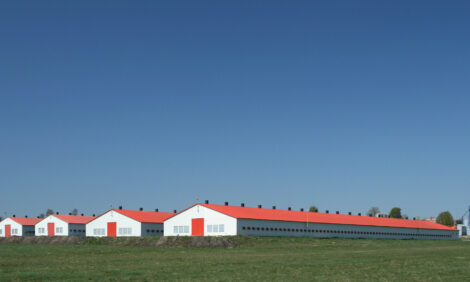



Cheap chicken a major health risk, finds study
Research from Germanwatch found more than half of tested chickens contained antibiotic-resistant bacteria.The study of Berlin of chicken meat samples from large discounters was commissioned by the environmental and consumer protection organisation Germanwatch and has revealed alarming findings: 59 portions of chicken meat - purchased from Lidl, Netto, Real, Aldi (North and South) and Penny - or more than every second sample (56 percent) is contaminated with antibiotic-resistant pathogens. Every fifth sample has several different resistances and more than every third sample is contaminated with bacteria resistant to reserve or human critical antibiotics - special antibiotics that have to work in sick people in an emergency when other antibiotics stop working.
"Our samples show alarmingly high chicken meat resistance rates, suggesting that the federal government has failed to combat antibiotic resistance from factory farming," says Reinhild Benning, agricultural expert at Germanwatch.
Minister of Agriculture Klöckner said that bacteria resistant to antibiotics and even multi-resistant germs [was found] on meat destined for the kitchens of consumers, restaurants and hospitals. Benning said: "The requirements for the use of reserve antibiotics are much too lax. There are also high-risk gaps in the recording of antibiotic consumption. This opens backdoors for the misuse of antibiotics in industrial animal husbandry in Germany. "
Dr. Gerd Ludwig Meyer, specialist in internal medicine in Nienburg / Weser, illustrated the risks for consumers and residents: "People can capture antibiotic-resistant germs from factory farming, among other things, via food or via emissions from animal factories. Resistance rates will only drop when the federal government finally complies with its duty of care and prohibits veterinarians from compensating for the consequences of catastrophic housing conditions and turbo-breeding in the production of cheap meat and cheap milk by prescribing antibiotics," said Meyer.
According to the World Health Organization, around 700,000 people worldwide die every year from infections that are no longer helped by antibiotics and, according to the Robert Koch Institute, up to 4,000 people die in Germany each year.
No slaughterhouse company consistently offers uncontaminated chicken meat
Of the five discounters, twelve portions of conventional chicken meat were purchased from each. A sample from Penny was damaged during shipment and not examined. Over 80 percent of samples were contaminated at Penny, 75 percent at Aldi, over 50 percent net, and every third sample at Lidl and Real. They all come from the four highest-grossing slaughterhouse groups in the chicken meat sector: the PHW Group, the Sprehe Group, Plukon Germany and the Rothkötter Group. None of the slaughterhouses offered consistently unpolluted chicken meat.
Meat from farm butcheries shows hardly any contamination
In addition, Germanwatch conducted eleven test purchases at farm slaughterhouses from all over Germany. Here, only one chicken meat sample was found to contain one MRSA germ (9 percent). No resistant pathogens were detected in the six organic chicken meat samples from artisanal slaughter. These sampling results point in the same positive direction as the representative monitors of the Federal Office of Consumer Protection (BVL), who also found significantly lower antimicrobial resistance on broiler chickens from organic farms.
Despite halving the use of antibiotics in Germany since 2011, more than twice as many antibiotics per kilogram of livestock are still administered in Germany than in livestock farms in Denmark, Great Britain or Austria. Above all, Germanwatch calls for a ban on the particularly important reserve antibiotics for animal husbandry. In addition, the consumption of veterinary antibiotics must be fully covered, including in the animal feed industry. With statutory minimum prices for veterinary antibiotics Minister Klöckner must ensure that investment in more animal-friendly forms of housing will be cheaper than the hitherto dominant mass animal husbandry with high antibiotic needs, because it affects a lot more animals and the high consumption promotes the formation of resistance.
"The Federal Government has a special responsibility not only for the health of its own population, but also beyond Germany, and in the past year alone almost one million tonnes of chicken meat were exported," explains Reinhild Benning. "The poultry meat industry is also exporting antibiotic resistance and related health risks, not least to countries with very weak health systems."
Germanwatch demands labeling of the livestock form on food
Germanwatch demands that the form of keeping be indicated on animal food, so that consumers can avoid meat from industrial livestock. "Only a legal labeling scheme modeled on egg marking gives farms the long-term security for animal welfare investments in the barn," says Benning. Supermarket companies would have to end their competition for the lowest food price. The associated exploitation of humans and animals increasingly produces risks, for which antibiotic resistance is an example.
Note: All samples were examined by the Laboratory for Pharmacy at the University of Greifswald on behalf of Germanwatch. It is a sample examination. State-of-the-art zoonotic monitoring has been used in tests in anonymised supermarkets and at slaughterhouses for comparable results in chicken meat resistance rates.









